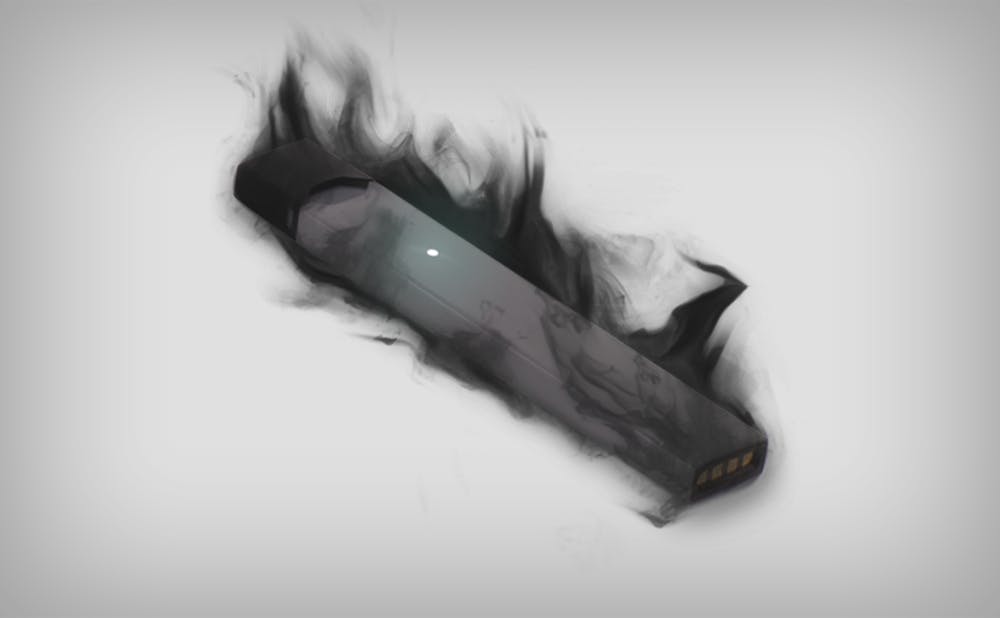North Carolina is suing JUUL, accusing them of putting up a smoke screen by employing “deceptive and unfair practices” to market their products to children and young adults.
North Carolina’s legal action, the first of its kind against the e-cigarette giant, comes in response to what the United States surgeon general and the Food and Drug Administration have dubbed an “e-cigarette epidemic among youth.” The lawsuit cites JUUL’s control over 75% of the market share and a nearly 80% increase in e-cigarette use among high school students over the past year.
In the lawsuit, the state criticizes JUUL’s “youth-focused” marketing and product development strategies.
“JUUL has played a central role in fostering the epidemic of e-cigarette use among youth,” the lawsuit states.
North Carolina also accuses JUUL of misrepresenting the concentrations of nicotine in its products and downplaying the associated health risks. The lawsuit requests that the court restrict the flavors of JUUL products sold in North Carolina and limit JUUL’s ability to market and sell to minors in the state.
Although North Carolina is the first state to file a lawsuit against JUUL, similar lawsuits are not uncommon, wrote Joseph Blocher—Lanty L. Smith professor of law at Duke—in an email to The Chronicle.
“There is certainly precedent for state governments suing large corporations—that’s what happened in the mid-1990s when about 40 states sued the tobacco industry, eventually leading to a massive settlement,” Blocher wrote. “Among other things, that settlement included limitations on youth marketing, which is central to the JUUL lawsuit, so there are plenty of parallels.”
Despite North Carolina’s efforts to crack down on the popular e-cigarettes, JUULs are likely to stay on Duke’s campus for the foreseeable future.
President Vincent Price announced in an email to the Duke community in April 2018 that the University will officially become smoke-free in July 2020, but the new regulations will not restrict e-cigarette use.
Meanwhile, Duke students are divided on the presence of e-cigarettes on campus.
Sophomore Alex McMullen suggested that the lawsuit against JUUL is unlikely to significantly cut down on e-cigarette youth because of similar products. Many of those products mimic JUUL’s marketing and flavor options, which are referenced in the lawsuit.
“In regards to the vaping ‘epidemic’ which many are talking about, I believe it is already here, and will continue to grow regardless of legal action against JUUL,” McMullen wrote in a message to The Chronicle.
Other students took a different view of the growth of the e-cigarette market. Sophomore Cate Schick argued that there may be an unexpected upside to the growth of the e-cigarette market since fewer minors are now using traditional cigarettes.
“JUUL may be promoting an epidemic of nicotine addictions in young people, but the silver lining is that people don’t feel the need to smoke cigarettes to ‘be cool’ anymore,” Schick said.
Get The Chronicle straight to your inbox
Signup for our weekly newsletter. Cancel at any time.

